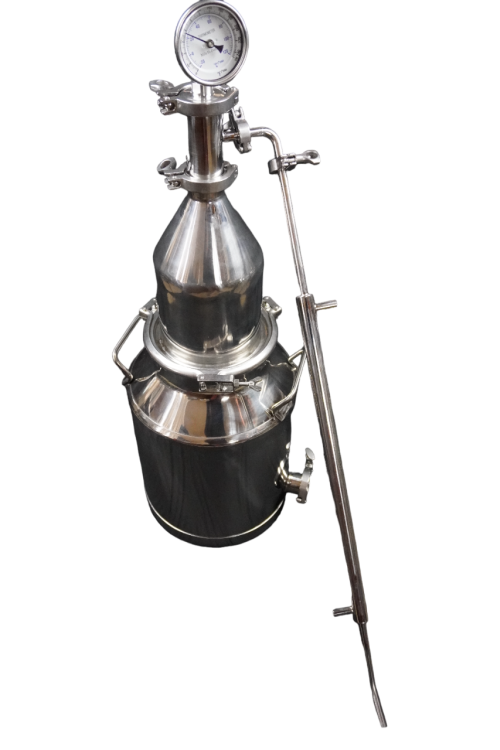 Home distillation is a fascinating and rewarding hobby that allows enthusiasts to craft their own small batch spirits with unique flavors and characteristics. To embark on this journey, it is essential to invest in the right equipment to ensure safety, efficiency, and the production of high-quality spirits. Here’s a comprehensive guide to the essential home distillation equipment for small batch spirits.
Home distillation is a fascinating and rewarding hobby that allows enthusiasts to craft their own small batch spirits with unique flavors and characteristics. To embark on this journey, it is essential to invest in the right equipment to ensure safety, efficiency, and the production of high-quality spirits. Here’s a comprehensive guide to the essential home distillation equipment for small batch spirits.
- Distillation Apparatus: At the heart of any distillation setup is the distillation apparatus itself. This typically includes a pot still or column still, depending on the type of spirits you intend to produce. Pot stills are excellent for whiskey and flavored spirits, while column stills are preferred for producing high-proof neutral spirits like vodka. Choose a size that suits your batch size and meets legal requirements in your area.
- Boiler or Mash Tun: A dedicated boiler or mash tun is essential for heating and fermenting your raw ingredients. Stainless steel boilers are popular for their durability and ease of cleaning. Ensure your boiler has a tight-fitting lid to contain vapors during the distillation process.
- Condenser: The condenser is responsible for converting the alcohol vapor back into liquid form. There are two main types: a simple worm condenser and a more efficient coil condenser. The latter is often preferred for its effectiveness in cooling the vapor and maximizing alcohol condensation.
- Fermentation Vessel: A fermentation vessel is necessary for the initial stage of spirit production, where yeast converts sugars into alcohol. Choose a food-grade vessel with an airlock to prevent contamination and allow gases to escape during fermentation.
- Yeast and Nutrients: Selecting the right yeast strain is crucial for achieving the desired flavors in your spirits. Additionally, providing appropriate nutrients for the yeast enhances fermentation efficiency. Consider experimenting with different yeast strains to find the one that complements your chosen recipe.
- Hydrometer and Test Jars: Monitoring the alcohol content of your wash or mash is vital for ensuring consistency and quality. A hydrometer and test jars help you measure the specific gravity at various stages of the fermentation process, allowing you to calculate alcohol content accurately.
- Thermometer: Controlling temperature is crucial during fermentation and distillation. A reliable thermometer ensures you maintain the optimal temperature range for yeast activity and helps prevent undesirable compounds from entering the distillate.
- pH Meter: Monitoring the pH of your mash or wash is often overlooked but plays a significant role in yeast health and fermentation efficiency. Maintaining the correct pH range promotes a healthy environment for yeast to thrive.
- Safety Equipment: Prioritize safety with essential equipment such as heat-resistant gloves, safety glasses, and a fire extinguisher. Distillation involves heat and flammable materials, so taking precautions is paramount.
- Storage Containers: Once your spirits are distilled, you will need appropriate containers for aging and storing. Oak barrels or glass bottles are common choices, each imparting its unique character to the final product.
Investing in these essential pieces of home distillation equipment sets the foundation for a successful and enjoyable foray into crafting small batch spirits. Remember to educate yourself on the legal aspects of home distillation in your area and always prioritize safety throughout the process.